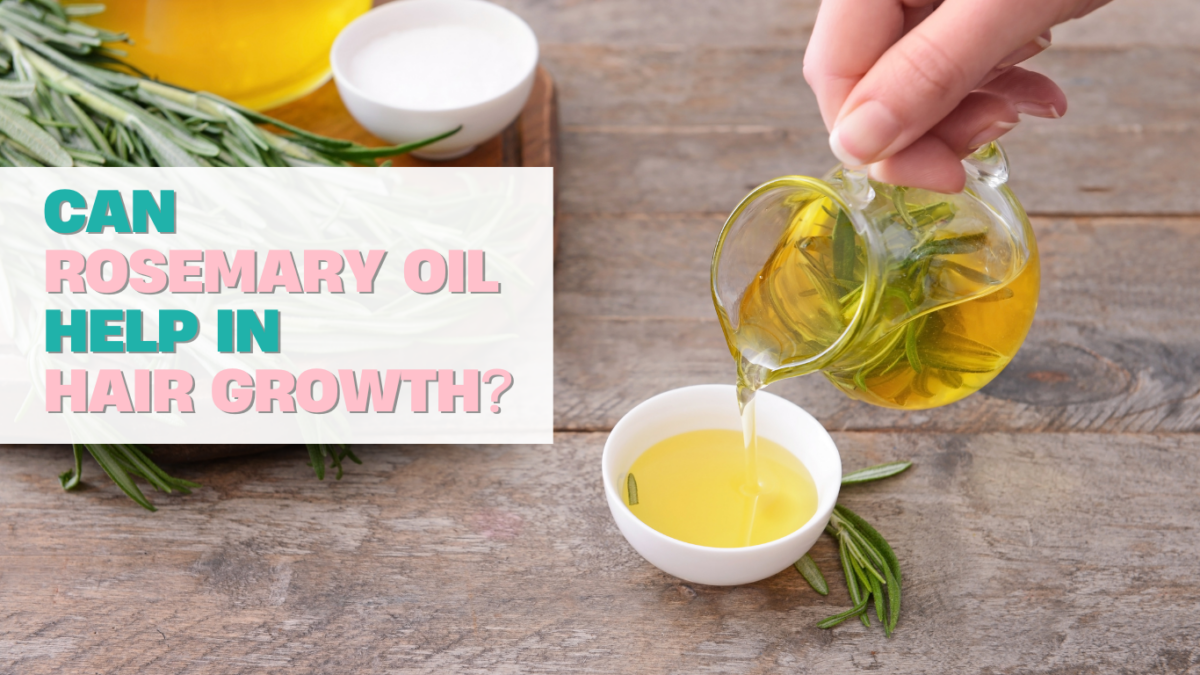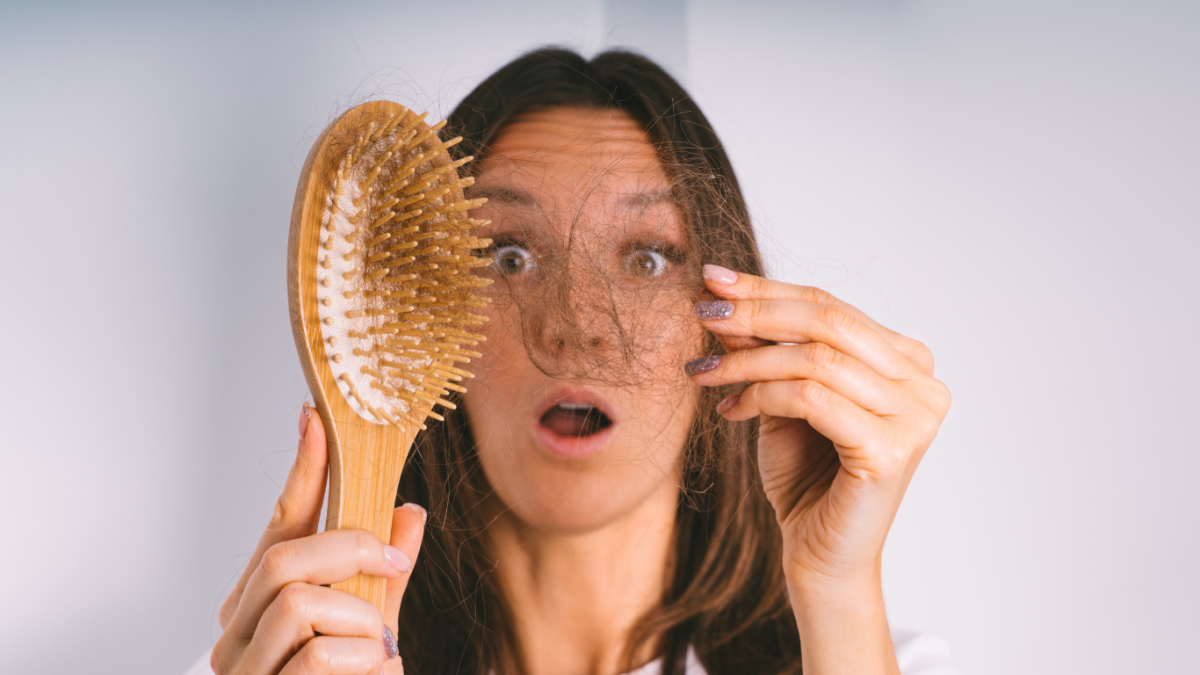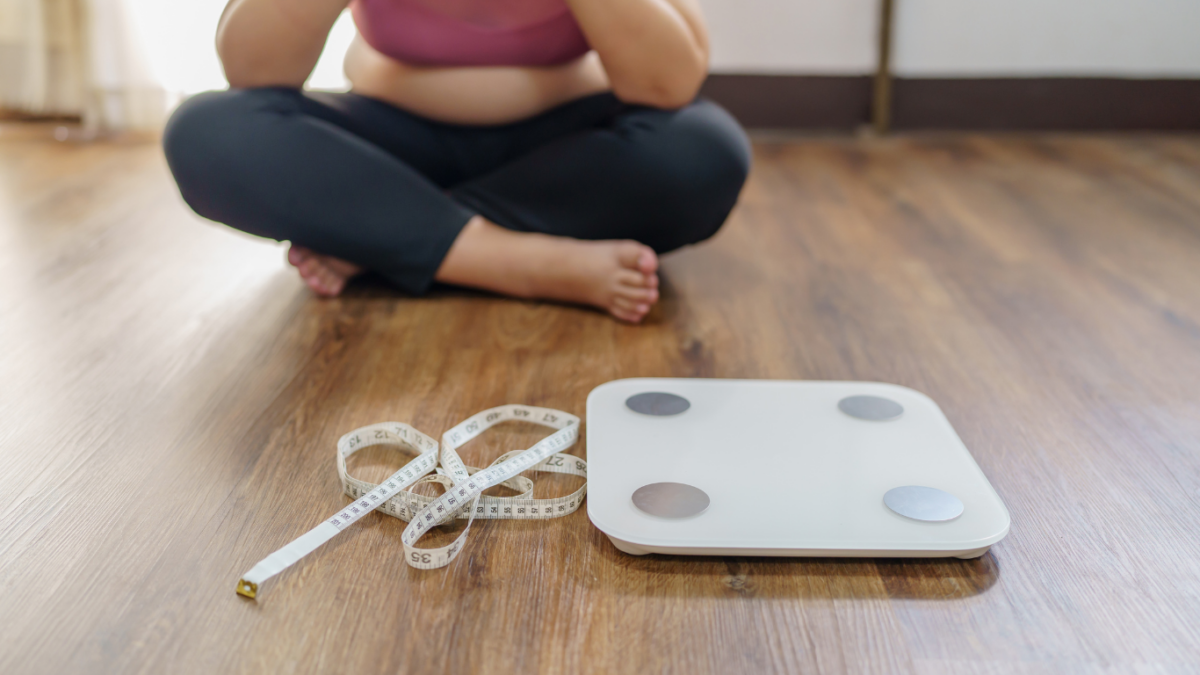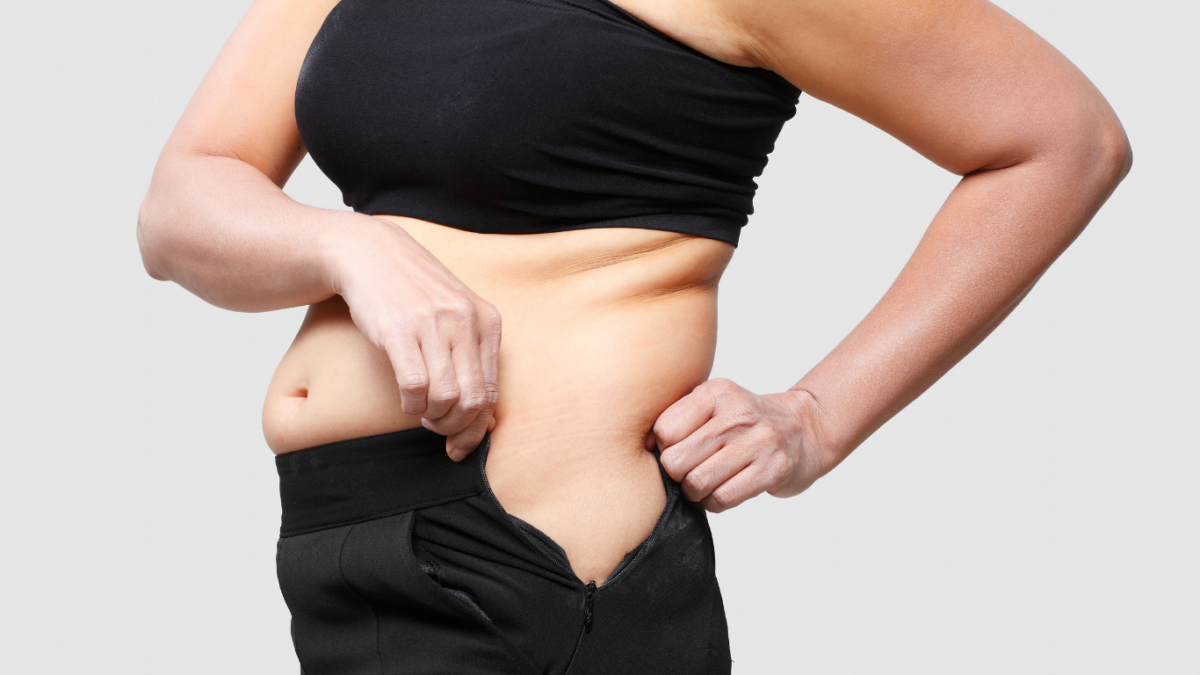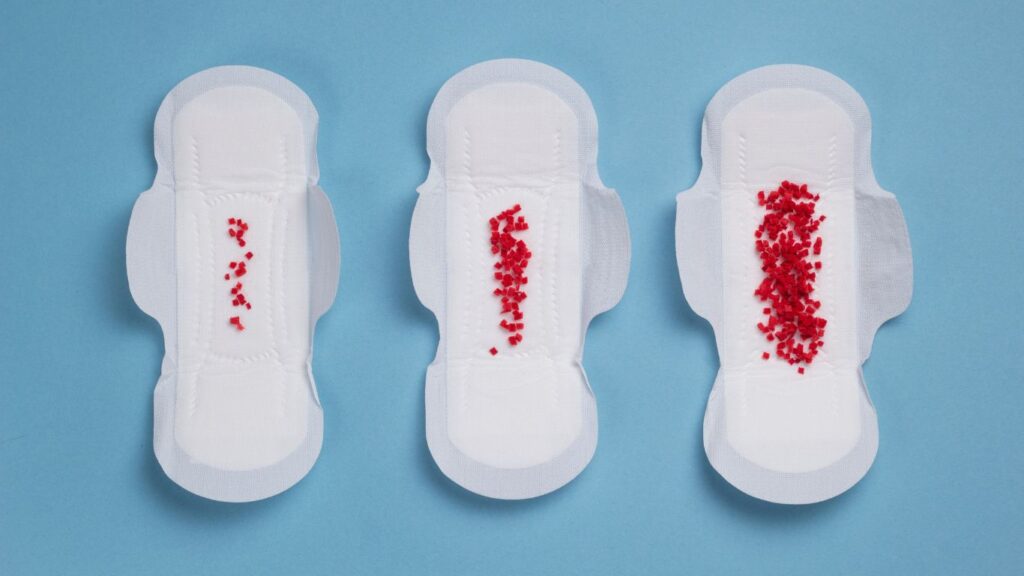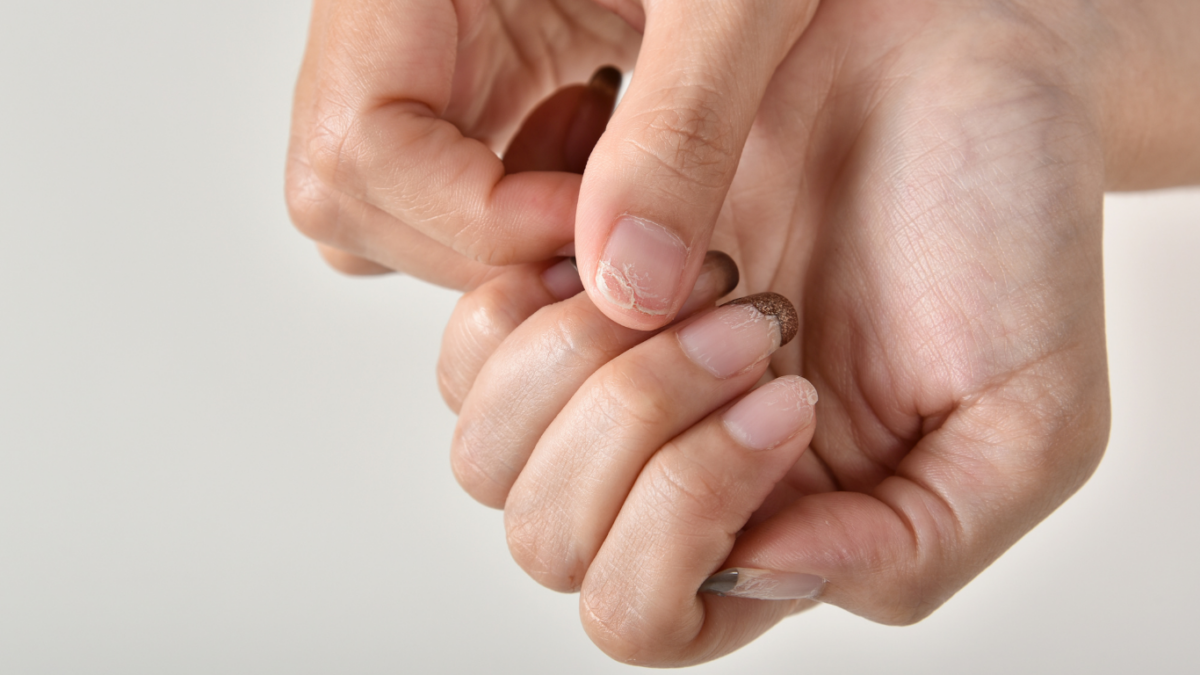Can Rosemary Oil Help in Hair Growth?
Ever heard about the magic of rosemary oil for hair? This isn’t just your regular kitchen herb. Rosemary oil, rooted deep in history, is quite the champ for boosting hair growth and tackling thinning spots.
Does this stuff actually work, though?
John Horton’s Health Essentials podcast recently talked about rosemary oil for hair growth, not the cooking kind. Dr. Shilpi Khetarpal, a Cleveland Clinic dermatologist, was on the show to chat about this interesting topic. She said hair is a big deal, culturally and personally, and it’s a common concern in her practice, especially in our online world.
They discussed a 2015 study that compared rosemary oil to 2% minoxidil (Rogaine). The results were promising, but you got to be consistent with using it. They recommend applying it to your scalp every day, though some people might not like the oily feeling.
Dr. Khetarpal explained that rosemary oil, from the actual plant, has a bunch of good properties. It can help with tissue repair, cell turnover, and even scalp circulation. This increased blood flow can feed your hair follicles and lead to healthier hair. Plus, rosemary oil’s anti-inflammatory and antioxidant properties can help fight hair loss and promote growth.
If you’re thinking about trying rosemary oil, Dr. Khetarpal has some tips. Get a pure, fragrance-free version and do a patch test first. There are a bunch of commercial products with rosemary oil, but choose a reputable brand. How you apply it depends on your hair type, but a small amount (about a teaspoon) should be enough for your whole scalp. For best results, use it two to three times a week for at least six months.
What happens if you put rosemary oil in your hair?
Well, the oil itself can be a bit of a buzzkill for your hairdo. If you’ve got thin or fine hair or not a ton of it, using rosemary oil might leave your locks looking all greasy and weighed down. Not a good look, right? If that’s your jam, try slathering this stuff on as a pre-shampoo treatment, but only on days when you’re planning to use a clarifying shampoo.
So, how often should you get cozy with rosemary oil in your hair?
If you’re battling the itchiness from dandruff, mix the oil with some other stuff and slap it on your scalp three to four times a week. Give your noggin a 20-minute massage, then wash it all out with shampoo.
Now, if you’re one of those fine-haired peeps or your scalp’s got a thing for producing extra oil, you might want to use rosemary oil as a scalp treat once a week. Just remember to wash it out pronto to dodge the greasy look.
Can you snooze with rosemary oil in your hair?
Nope, that’s a no-go, according to our expert. Leaving any oil hanging out on your scalp all night can mess with your scalp’s little ecosystem, causing itchiness and redness. And guess what? This rule applies to all oils, not just rosemary.
So, how should you actually use rosemary oil for your hair?
- Well, don’t just go dumping it straight on your head. Start slow – like once or twice a week.
- Mix about five drops of rosemary essential oil with a friendly carrier oil like coconut or jojoba.
- Give your scalp a little love for five to ten minutes, then rinse it out. Diluting the pure stuff helps tone down its power and keeps your skin from getting all cranky.
- If you’re feeling adventurous, you can blend rosemary oil with other essential oils.
- Or, if you’re a lazy genius, just toss some in your regular shampoo or conditioner and get the benefits while you wash.
DIY Rosemary Oil Recipe using Fresh Rosemary
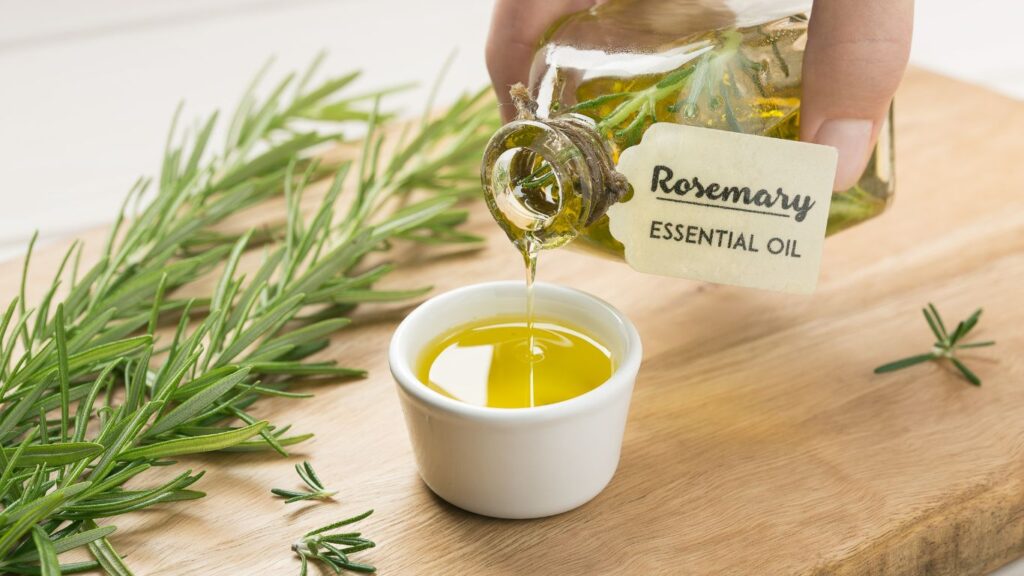
DIY Rosemary Oil for Hair Growth
Ingredients
- 1/2 cup of castor oil
- 1/2 cup of coconut oil
- 1/2 cup of fresh rosemary sprigs
Directions
- Wash the rosemary sprigs thoroughly under tap water to ensure they’re free from any contaminants. Gently dab them with a dry cloth.
- Finely dice the rosemary to bring out its fragrant essence.
- In a saucepan, combine the coconut and castor oil, then mix in the diced rosemary.
- Warm the mixture on a low flame, allowing it to infuse for roughly 30 minutes. Make sure to stir now and then to avoid the rosemary from adhering to the pan’s base.
- Once done, set the saucepan aside and give the oil some time to cool down.
- Position a fine sieve over a pristine container or jar. Gradually pour the oil, ensuring the rosemary remnants are trapped by the sieve.
- Gently press the rosemary against the sieve using a spoon or your fingers to squeeze out any lingering oil.
- Dispose of the residual rosemary and pour the purified rosemary oil into a sterile, tinted glass container for keeping.
- To maintain the oil’s efficacy, store the container in a shaded, chilly spot.
And if you’re not into DIY mode, no sweat. There are plenty of hair products out there that already have rosemary oil in the mix. So, go ahead, pamper those locks!

